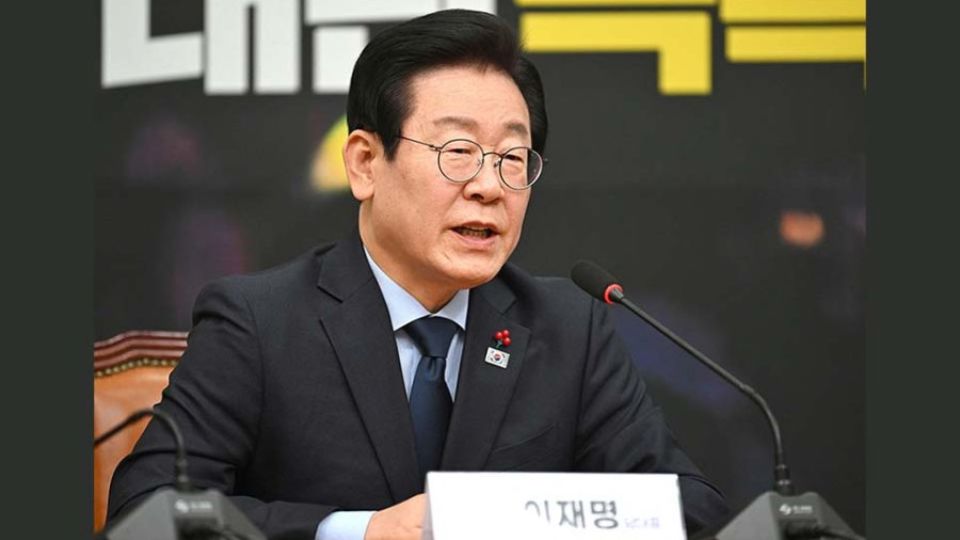February 25, 2025
SEOUL – With the possibility of an early presidential election looming over their heads, the rival parties here have locked horns over a thorny issue -– an overhaul of the country’s 25-year-old inheritance tax system.
The government and the ruling party are pushing to cut the highest tax rate, currently 50 percent on inheritances exceeding 3 billion won ($2.1 million), to 40 percent while lowering the threshold for the highest rate to 1 billion won.
Main opposition leader Lee Jae-myung and the Democratic Party have expressed disagreement with the conservative bloc’s idea, saying that such changes would primarily benefit the superrich. Instead, Lee recently floated a revision that focuses on not levying inheritance tax on properties worth up to 1.8 billion won.
Tensions between the Democratic Party of Korea and the People Power Party have escalated in recent days, with Lee on Sunday requesting that ruling party floor leader Kweon Seong-dong join him in a televised debate over the inheritance tax issue. Kweon on Monday agreed to join on the condition they discuss “not only the inheritance tax, but all issues.”
This follows Lee’s criticism of the People Power Party’s tax overhaul plan on Saturday, calling it “a tax cut for the superrich” that fails to benefit the middle class.
“The People Power Party has revealed (its intentions) to adopt a tax cut for the superrich by reducing the highest tax rate from 50 percent to 40 percent,” the main opposition leader wrote on Facebook.
“(The current inheritance tax rate) technically benefits those with assets worth 6 billion won. I ask the floor leader of the far-right insurrection party Kweon Seong-dong why they are planning to cut the inheritance tax for the superrich with over 6 billion won in assets by 10 percent?” he added.
The People Power Party on Monday shot back, accusing Lee of copying the economic policies of the conservative party but twisting them for his own benefit.
“It wouldn’t be an issue if the Democratic Party and Lee adopted the conservative party’s policies and achieved the right outcomes. However, if they selectively copy only the parts they favor, they risk straying from the right path,” said Kwon Young-se, interim leader of the People Power Party, during an intra-party meeting.
Kwon lambasted apparent attempts by Lee to win favor from both businesses and labor unions.
“In front of corporations, Lee claims that their growth is all there is to the country’s economic growth … And when he meets with the Korean Confederation of Trade Unions, he tells them that we must work only four days a week and calls the maximum inheritance tax rate cut a rate cut for the superrich,” he added.
Following remarks earlier this month in which Lee labeled the Democratic Party “economy-focused” and “centrist conservative,” Lee made several related moves, such as visiting the Hyundai Motor manufacturing plant in Asan, South Chungcheong Province, last week. The same week, Lee visited the headquarters of the nation’s two largest umbrella unions to quell their concerns about the Assembly possibly passing a bill that would allow chipmakers to adopt more flexible working hours.
A political expert called Lee’s latest moves an attempt to attract moderate and middle-class voters.
“Lee is expected to take further steps to win the hearts of moderate and middle-class voters through the pursuit of his own inheritance tax system overhaul, which he claims would focus on benefiting the middle class,” political commentator Park Sang-byeong said via phone.
The Yoon Suk Yeol administration has been making efforts to revamp the inheritance tax system, which has not been updated since 2000. The system has earned criticism from critics for its high rates — the second-highest in the world after Japan — and excessive burdens placed on local companies, including the risk of double taxation.


